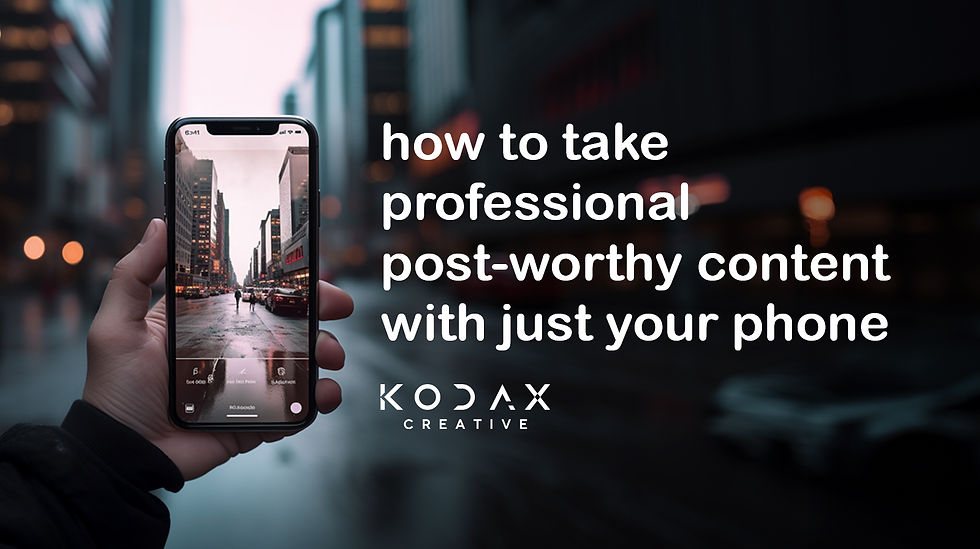Why Influencers are Useless
- Daniel Yeung
- Dec 18, 2023
- 2 min read
Updated: Dec 21, 2023

In a world where every man, woman, grandma and dog is a KOL, literally, we take a look at why influencer marketing is rapidly losing value. In recent years, influencer marketing has gained immense popularity across all industries, and rightly so. What started off as marketing using scantily clad females has turned into fine tuned marketing ploys with well established influencers across a diverse genre of industries. With 2024 fast approaching, we look at reasons why using influencers could be useless for your business.

Lack of Authenticity:
One of the main drawbacks of relying heavily on KOLs and influencers is the potential lack of authenticity in their endorsements. With an ever maturing consumer base, it is becoming apparent when content is positioned as an ad. Consumers don’t appreciate the hard sell in todays market, and if too overly done, it could even harm the brands reputation. If done, It’s important that influencers should integrate the product/service to showcase their genuine interest in the business. This becomes a much more authentic approach and is received better by potential consumers.

2. Oversaturation and Competition:
The influencer industry has become saturated, with countless individuals vying for attention and partnerships. As a result, it can be challenging to stand out among the noise and differentiate your brand from competitors. Moreover, the constant pursuit of popular influencers often leads to inflated costs and limited availability, making it harder to achieve a meaningful or even trackable return on investment. Instead of vying for the same popular influencers, we seek to find micro influencer with a high engagement rates that appeal to a very specific demographic.
3. Short-Term Impact:
In many cases, the impact of influencer marketing campaigns is short-lived. The initial spike in brand exposure and engagement may quickly fade away, leaving minimal long-term benefits. This is especially true when the focus is solely on promoting a product or service, rather than building a lasting relationship with customers. Instead, we prefer longer term partnerships with relevant influencers so that we can build lasting relationships and consumers can see the genuine interest in the business.
4. Ineffective Measurement and ROI:
Measuring the true impact of influencer marketing campaigns can be challenging. Determining the return on investment (ROI) and accurately attributing sales or conversions to influencer endorsements can be ambiguous. Without clear metrics and tangible results, it becomes difficult to assess the actual value derived from these partnerships. When working with influencers, we look at multiple metrics that can help give us the best chance of success. These would include click through rates, engagement rates, breakdown of audience demographic and so on.

Are influencers completely useless? No. Should you use them in 2024? Yes. Did we write a title grabbing headline that was completely true? Maybe.
When you work with influencers moving forward, do your research before hand. By adopting a more balanced and strategic approach to influencer marketing, businesses can become more selective when shortlisting the who they want to partner for a more effective campaign.
How do you decide who to work with?
Get in touch with us below:




Comments